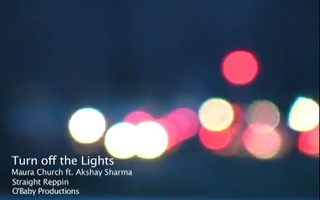UPDATED: November 20, 2012, at 12:23 a.m.
Tara Raghuveer ’14 and running mate Jen Q. Y. Zhu ’14 won this year’s Undergraduate Council presidential election with a decisive majority.
Raghuveer and Zhu received 1,587 first-place votes, 533 more than second-place finisher Michael C. George ’14 and his running mate Nicole E. Granath ’15. Akshay M. Sharma '14 and Akanksha Sharma ’14 placed third, ahead of Spenser R. Goodman ’14 and running mate Darren C. McLeod ’14.
“I feel amazing. I’m so honored to have the support of my amazing staff and friends,” Raghuveer said after learning of her victory at her election results party just after midnight on Saturday morning. “I’m so excited for the next year.”
Undergraduates cast more than 3,600 ballots in the three days of the election, significantly surpassing last year’s 2,730 votes.
In addition to clicking in their choice for the presidential ticket, students also voted on three student-initiated referenda—all of which passed by large margins. The referendum proposals—which advocated divestment of University funds from the fossil fuel industry, the establishment of a social choice endowment fund, and reconsideration of the College's sexual assault policies—earned 72 percent, 80.5 percent, and 85 percent of the vote, respectively.
Though George, who is also a Crimson news editor, secured a number of coveted endorsements—including those of the Harvard College Democrats, the Harvard Republican Club, and The Crimson—Raghuveer and Zhu capitalized on social media and online campaigning with the help of a staff numbering more than 150.
“My staff was absolutely incredible—some of the most talented people I’ve worked with at Harvard,” Raghuveer said after wrapping up her campaign on Friday afternoon. “It was awesome to see everyone rally behind a common goal. The competition with the other candidates was civil, and it was fun to have some good competition.”
Raghuveer began outlining her vision for the UC and recruiting her team over the summer. Throughout her campaign, she emphasized the importance of increasing the UC’s “relevance.” Her proposals for reform include establishing an online portal for UC grants, collecting student opinion through electronic surveys, and creating a public forum where all members of the Harvard community can gather to discuss University-wide issues.
After the results came in, Zhu promised that she and Raghuveer would strive to deliver on their campaign goals.
“I can’t ever express how grateful I am to the student body for believing in us,” Zhu said. “From academics to representation, we will not let them down.”
Students who spent weeks collecting signatures so their causes could appear on the ballot as referenda also celebrated the results of the election.
Alli J. Welton ’15, a board member of Harvard’s chapter of Students for a Just and Stable Future, the group that sponsored the fossil fuel referendum, acclaimed its wide margin of victory.
“I think that 72 percent in a year of extremely high voter turnout is an overwhelming vote of student support for fossil fuel divestment at Harvard,” she said. “Hopefully the referendum results will prompt President Faust to finally agree to meet with us.”
According to Welton, Harvard is the first school in the nation to pass a student referendum calling for divestment from publicly traded fossil fuel corporations.
Read more in News
NFL Official Talks SafetyRecommended Articles
-
 Earth Day Video Released
Earth Day Video Released -
 The Back Page's Athlete of 2011, Round 1: Power v. Campbell
The Back Page's Athlete of 2011, Round 1: Power v. Campbell -
UC Outings Gain Few, Hope to ImproveAlthough few students attended the first two events of the Undergraduate Council’s new program “UC Outings,” UC representatives said they hope to further develop the program.
-
 Cabot Café to Reopen with Better Space, Cheaper Prices
Cabot Café to Reopen with Better Space, Cheaper Prices -
A Watershed ElectionAlthough we remain skeptical of the role and potential of the UC, we hope that Raghuveer and Zhu will prove us and other skeptics wrong.













